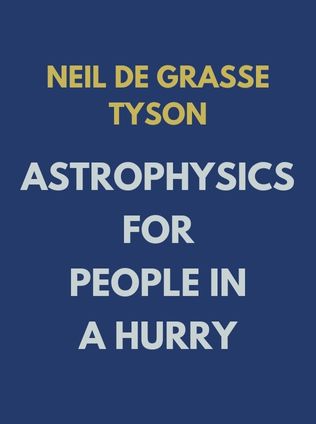
Brief Answers to the Big Questions
By Stephen Hawking
Published 10/2018
About the Author
Stephen Hawking was not just a brilliant physicist but a cultural icon who brought the wonders of the universe into the public consciousness. Born on January 8, 1942, in Oxford, England, Hawking developed an early interest in the cosmos. Despite being diagnosed with amyotrophic lateral sclerosis (ALS) at the age of 21, a condition that progressively paralyzed him, Hawking continued to contribute significantly to theoretical physics, particularly in the fields of cosmology, quantum gravity, and black hole dynamics.
His groundbreaking work, such as the formulation of Hawking radiation, which posits that black holes emit radiation and can eventually evaporate, challenged existing paradigms and opened new avenues of inquiry. Hawking was also an exceptional communicator, able to explain complex ideas in a way that was accessible to the general public. His books, including A Brief History of Time, have sold millions of copies worldwide, making him one of the most recognized scientists of the modern era.
Brief Answers to the Big Questions, published posthumously, serves as Hawking's final gift to the world—a collection of his thoughts on some of the most profound questions humanity faces. In this book, Hawking not only explores the cosmos but also delves into topics such as artificial intelligence, space colonization, and the future of humanity, offering insights that reflect his deep understanding of science and his concern for the future of our species.
Main Idea
In Brief Answers to the Big Questions, Stephen Hawking addresses some of the most fundamental questions about our existence and the universe. The book is organized around ten questions that probe the nature of the cosmos, the existence of God, the future of artificial intelligence, and humanity's destiny. Hawking's central thesis is that science provides the most reliable framework for understanding these big questions and that scientific literacy is crucial for the survival and progress of humanity.
Hawking argues that the answers to these questions not only shape our understanding of the universe but also have practical implications for the future of human civilization. He emphasizes the importance of embracing a scientific approach to tackle the existential threats we face, from climate change to the ethical challenges posed by artificial intelligence. Ultimately, Hawking's message is one of optimism: by leveraging our scientific knowledge and curiosity, we can overcome these challenges and continue to thrive as a species.
Table of Contents
- Is There a God?
- How Did It All Begin?
- Is There Other Intelligent Life in the Universe?
- Can We Predict the Future?
- What Is Inside a Black Hole?
- Is Time Travel Possible?
- Will We Survive on Earth?
- Should We Colonize Space?
- Will Artificial Intelligence Outsmart Us?
- How Do We Shape the Future?
Is There a God?
Stephen Hawking opens the book with a question that has puzzled humanity for millennia: Is there a God? This question is not just a matter of theology or philosophy but one that intersects with science. Hawking approaches it from a scientific perspective, questioning the necessity of invoking a deity to explain the existence of the universe.
Hawking acknowledges that the idea of God has been used historically to explain the unknown, particularly the origins of the universe. However, he argues that modern science offers a more compelling explanation. According to Hawking, the laws of physics provide a complete and consistent description of the universe, leaving little room for a divine creator:
"One could define God as the embodiment of the laws of nature. However, this is not what most people would think of as God. They mean a human-like being with whom one can have a personal relationship." — Stephen Hawking
Hawking suggests that if God exists, He is bound by the laws of physics, just like everything else in the universe. This idea challenges the traditional view of an omnipotent, interventionist deity and instead proposes a more abstract, impersonal concept of God—one that is synonymous with the natural laws that govern the universe.
Furthermore, Hawking points out that while science does not disprove the existence of God, it does provide a framework that makes God unnecessary for explaining the universe's origins and operations. He posits that the Big Bang, which marks the beginning of the universe, did not require a cause external to the laws of nature:
"Since events before the Big Bang have no observational consequences, one may as well cut them out of the theory and say that time began at the Big Bang." — Stephen Hawking
This perspective suggests that the universe can be understood entirely through natural laws, without the need for supernatural explanations. In doing so, Hawking invites readers to consider a view of the universe that is based on evidence and reason, rather than faith.
How Did It All Begin?
The origins of the universe have fascinated scientists and philosophers alike, and in this chapter, Hawking explores the question: How did it all begin? He delves into the Big Bang theory, which posits that the universe began as an infinitesimally small, infinitely dense point that rapidly expanded to form the cosmos as we know it.
Hawking explains that the Big Bang represents the beginning of not just space but also time itself. Before the Big Bang, the concept of time as we understand it did not exist, which challenges our intuitive notions of cause and effect. This idea is central to Hawking's argument that the universe did not require a cause:
"The universe can and will create itself from nothing. It is not necessary to invoke God to light the blue touch paper and set the universe going." — Stephen Hawking
Hawking's assertion that the universe could spontaneously arise from nothing is grounded in the principles of quantum mechanics and general relativity. He describes how quantum fluctuations in the vacuum of space could give rise to the universe, a process that does not require the intervention of a creator.
To further support this idea, Hawking discusses the concept of imaginary time, a mathematical construct that allows physicists to describe the early universe in a way that avoids singularities and infinities. Imaginary time, combined with the no-boundary proposal he developed with James Hartle, suggests that the universe is finite but has no boundaries, much like the surface of a sphere:
"The boundary condition of the universe is that it has no boundary." — Stephen Hawking
This revolutionary idea implies that the universe is self-contained and self-sustaining, without the need for an external cause or creator. It challenges traditional cosmological arguments for the existence of God and offers a purely scientific explanation for the origins of the universe.
Is There Other Intelligent Life in the Universe?
The question of whether we are alone in the universe has intrigued humanity for centuries. In this chapter, Hawking examines the possibility of other intelligent life in the universe, a topic that has significant implications for our understanding of our place in the cosmos.
Sign up for FREE and get access to 1,400+ books summaries.
You May Also Like
Heaven Is For Real
A Little Boy's Astounding Story of His Trip to Heaven and Back
By Todd BurpoFactfulness
Ten Reasons We're Wrong About the World – and Why Things Are Better Than You Think
By Hans Rosling



















